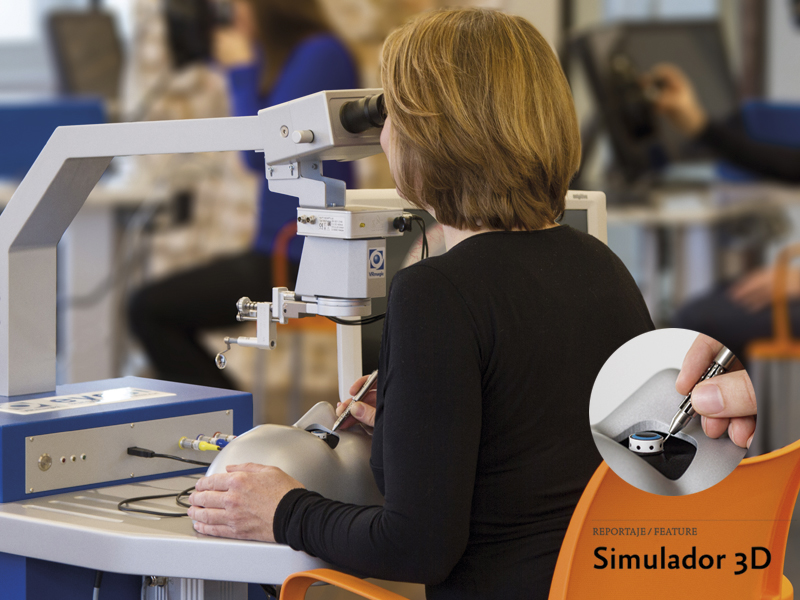The future of ophthalmology: Barraquer Masters prepare you for advances in the specialty
10/04/2025

19/09/2017
The learning process is the capacity to acquire knowledge and skills, with varying levels of difficulty or ease based on each individual. The fundamental mechanism for learning is usually copying and repeating. In some professions it isn’t so straightforward as there is no margin for error. This is the case with eye microsurgery where extraordinary precision and a perfect command of the technology used are compulsory in order to guarantee the patient’s safety and eyesight. The solution to learning without doing harm while still acquiring the necessary competence lies in experimental surgery on cadaver eyes and simulation using anatomical models.
At the Barraquer Ophthalmology Centre, we have a department committed to this end, which is now kitted out with a 3D simulator and modules for cataract and retina surgery. The aim of this technology is to create a true-to-life reproduction of the scenario of an everyday surgical activity like cataract surgery. The equipment contains a microscope that sends back a 3D image, a mask that simulates the patient’s face and eye, and pedals that change the microscope viewing conditions. Furthermore, it has utensils equivalent to those used in cataract and vitreous surgery. The instrument-tissue interaction is very true-to-life and provides the necessary touch to approach the situation with maximum authenticity.
Learning can be structured into a programme of activities that increase in difficulty throughout time. Some of them go beyond surgery with video game-like activities that help to train a trembling hand and refine precision. You can even improve the use of your non-dominant hand, aiming to increase the surgeon’s level of expertise.
Those that use it may only move on to the next level once they’ve reached the required achievement level. At the end of each activity, there is a performance summary assessed by teachers, it provides a condensed overview of the user’s learning status and helps to determine the transition from virtual surgery to real surgery.
In a prestigious centre where patient health is the top priority, we must guarantee that the teaching and skills acquired by our pupils exceed the minimal requirements for ensuring success in the theatre and that any complications that may arise are only due to the difficulty of the case and not the pupil’s own learning curve.